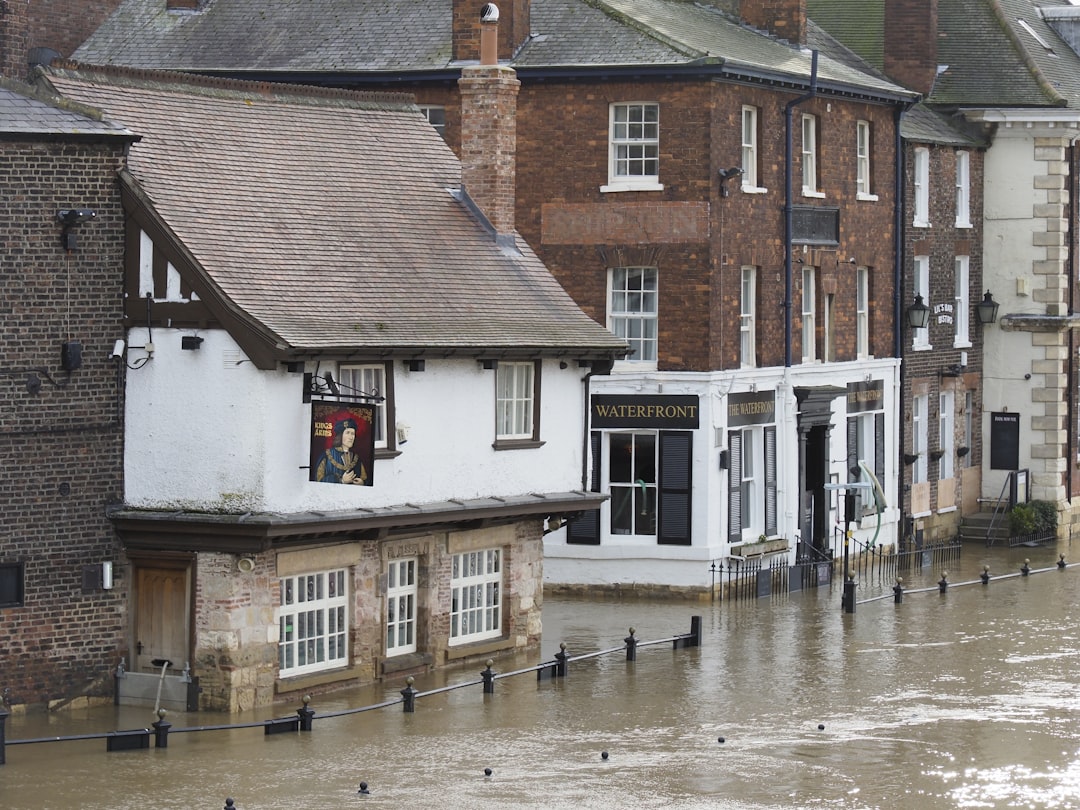 Photo from Unsplash
Photo from Unsplash
Originally Posted On: https://armoredbasement.com/basement-leaks-in-heavy-rain-heres-why/
Whether it’s a bit of water over a period of time or a sudden downpour, water in the basement can cause big problems for your walls, flooring and if mold grows, for your health!
Read on to understand why your basement leaks in heavy rain and what you can do about it.
Why Your Basement Leaks in Heavy Rain
Imagine that your basement is like a concrete swimming pool. Except, you want to keep water out, not in. As water surrounds the basement during heavy rains, it can find the path of least resistance and find a way inside. There are a few ways that water can get in. We will discuss each so you can figure out how your basement is leaking.
How Water Gets into the Basement
One of the most common ways water can get into your basement is through cracks in your foundation walls or floor.
Rainwater can also get in through the joints where the poured concrete floor meets the wall. Another way rain might get into your basement is through cracks in the mortar joints of the foundation walls. You’ll be able to see where these joints have begun to crumble if they are letting water into your basement.
Rainwater might find a way inside through your basement windows. If the windows are flawed or not properly installed, pelting rain can fill the window tracks and then spill over into the inside of your basement wall.
Likewise, if your window wells are not properly installed or the drain is clogged, the window well can fill up with water. That water can then make its way into your home through the windows, and cause rotting and damage to your window frame.
Clogged gutters and water pooling around your foundation are also causes of basement leaks.
Finally, it is possible for rainwater to get inside when the soil around your home becomes saturated with water. This causes a hydrostatic pressure that then can push moisture and water through the basement walls and floor.
Now, let’s look at these specific situations and how you can identify and fix each.
Subsurface Problem
If you notice rainwater coming up through your basement floor, then you have a subsurface problem on your hands.
Subsurface groundwater under hydrostatic pressure is a serious concern.
Window Well Issue
During heavy rain, have a look at your window wells. They should not be full of water.
If you can see a puddle of water, there is a problem with your window well. Dig down under the rocks to locate the drain. If your window well doesn’t have a drain, that is your big problem.
You need window drains to keep water from leaking into your basement.
If you have a drain, use a garden hose to test if the drain is working.
If not, you will need to fix the drain to avoid more damage in your basement. If the drain works fine, explore other reasons for why your basement is leaking.
Foundation Cracks and Holes
Sometimes, you have to cut away drywall or flooring to discover the cause of a basement leak.
Yes, that is frustrating but necessary in order to find the problem. Once you have identified the crack, you can have it permanently repaired.
It’s also a smart idea to opt for reinforced wall liners. These protect your insulation and drywall from future water damage.
Gutter and Downspout Issues
Make sure that your downspouts are in good working order.
If water pools around your exterior walls, it is more likely that water will find a way in. Invest in some downspout extenders to funnel rainwater away from your foundation.
Now is also a good time to check your gutters. When it rains, clogged gutters can cause rainwater to collect in puddles near your foundation.
When the soil around your home becomes soaked, your foundation is at risk for cracks, erosion and ultimately basement leaks.
Prevent Basement Leaks
You’ve heard it before, an ounce of prevention is worth a pound of repair. Once you finish dealing with your current basement leak, it’s wise to get started on a prevention strategy to ensure it never happens again!
Here are a few of the things you can do to prevent basement leaks.
Improve Grading
The soil surrounding your home should be pitched on a slope away from your house. That way water runs down the grade toward your yard instead of pooling at your foundation.
You can adjust your grading with some soil and wooden stakes.
Cover Window Wells
Installing a simple well cover is an easy and quick solution that will keep your well dry and free from debris.
When leaves and other debris get into your window well, it may clog your drain and cause a leak.
Install a Basement Waterproofing System
An interior drain system in your basement will make sure that you never have to worry about another basement leak again.
A sub-floor channel is installed to direct water to one or more sump pumps. This way, your drainage system captures water before it can reach the basement floor or your drywall.
Once the water reaches your sump pump, excess water is expelled out of your home.
Final Words
There you have it! A complete guide on why your basement leaks in heavy rain and what you can do about it.
Are you ready to waterproof your basement once and for all? Contact us today to schedule a free inspection.

